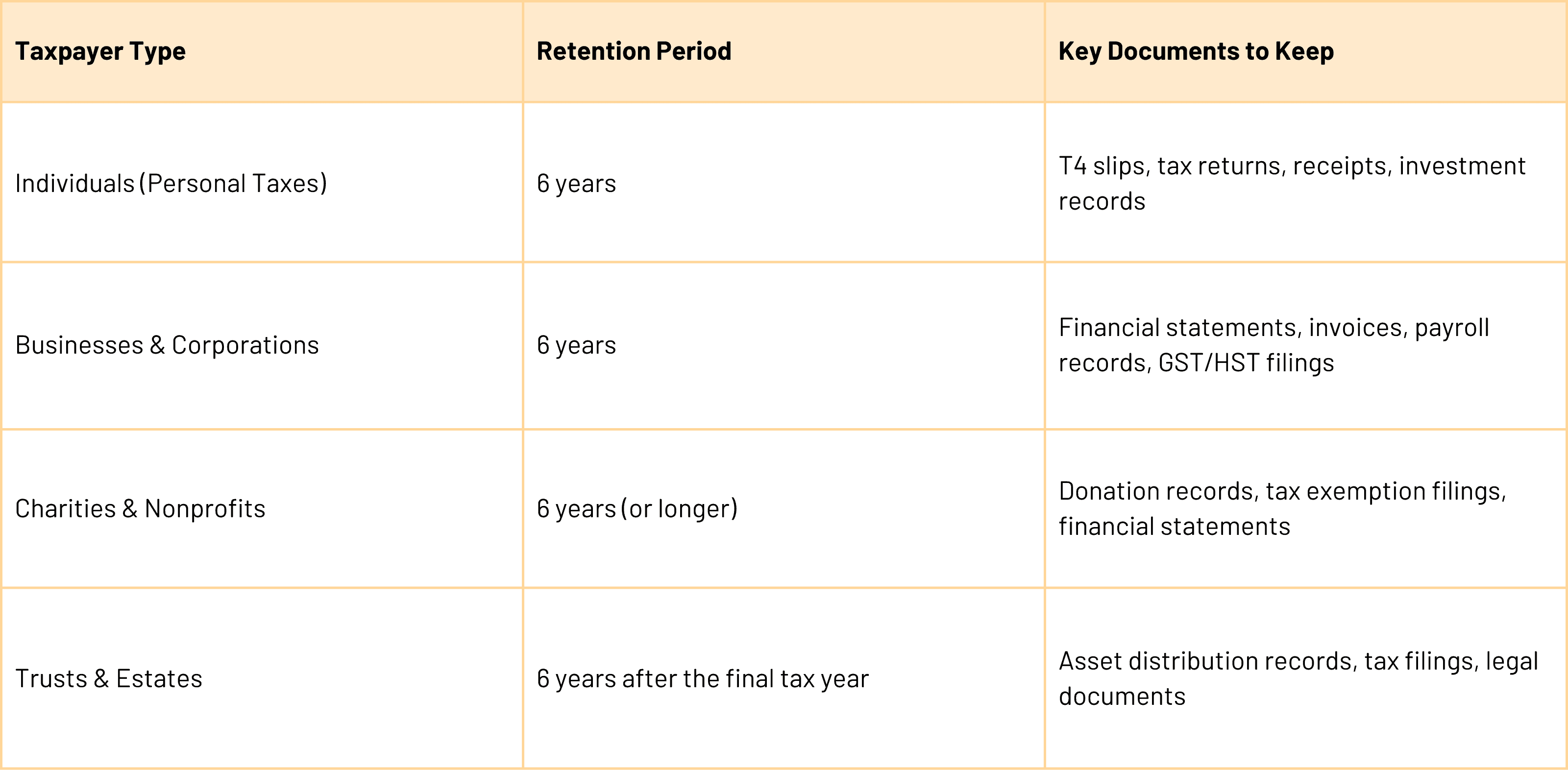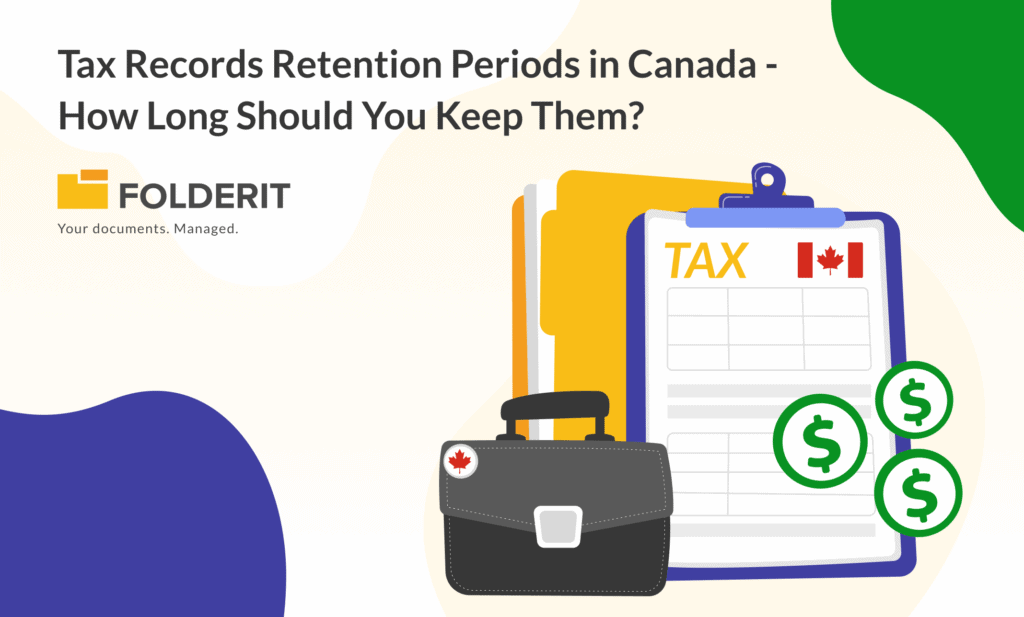Managing tax records is a tenuous financial responsibility, regardless of what kind of entity you are, whether you’re an individual taxpayer, a business owner, or a nonprofit organization in Canada. The Canada Revenue Agency (CRA) has clear guidelines on how long tax records must be retained, but the rules can vary based on factors like taxpayer type, late filings, and asset ownership.
How Long Should You Keep Tax Records in Canada?
The CRA’s standard rule is that tax records must be kept for at least six years from the end of the tax year they relate to. This applies to individuals, businesses, corporations, charities, and trusts.
Understanding the Six-Year Rule
- If you filed your 2024 tax return, you must keep all related documents until 2030.
- For businesses, this rule applies to financial statements, payroll records, invoices, receipts, and tax filings.
- The six-year period ensures the CRA has access to records if they need to audit or reassess a return.

Retention Periods by Taxpayer Type
Exceptions: When You Need to Keep Records for Longer
While the six-year rule covers most cases, there are special circumstances where tax records should be kept beyond six years:
Late or Amended Tax Filings
If you file your return late or make changes to a previously filed return, the six-year period starts from the new filing date.
Capital Property Records (Real Estate, Investments, etc.)
Documents related to capital property (real estate, investments, or major assets) should be kept for as long as you own the asset + six years after selling it. These records help establish the correct capital gains or losses when selling property or investments.
Ongoing Audits or CRA Investigations
If the CRA audits your tax filings, you must keep all related documents until the audit is fully completed, even if it takes longer than six years.
Nonprofit Organizations and Charities
Some nonprofit and charity-related tax documents have longer retention periods, particularly for grant documentation, donor records, and tax-exempt filings.
Penalties for Failing to Retain Tax Records
Failing to keep tax records for the required period can result in:
- Disallowed Tax Deductions: If audited, the CRA may reject expense claims due to missing documentation.
- Fines & Penalties: Businesses that fail to maintain tax records could face an extensive list of penalties.
- Increased Risk of Audit: If records are missing, the CRA may flag the taxpayer for further investigation.
Businesses and individuals must ensure proper record-keeping to avoid compliance risks and financial setbacks.
Best Practices for Managing Tax Records
Now that we’ve covered the CRA’s retention rules and exceptions, let’s explore how individuals and businesses can efficiently manage tax records to stay compliant and avoid unnecessary risks. Keeping tax documents organized doesn’t have to be overwhelming, using digital tools and best practices can simplify the process.
1. Organize Your Tax Records by Category
Tax records should be structured so they’re easy to retrieve when needed. A well-organized system prevents lost documents and speeds up audits or financial reviews.
- Individuals should categorize records by income, expenses, tax deductions, and investments.
- Businesses should maintain structured folders for financial statements, payroll records, and expense receipts.
- Nonprofits & Charities should separate donor records, grant documentation, and tax exemption filings.
2. Keep Digital Copies of Tax Documents
The CRA allows businesses and individuals to store tax records digitally, as long as they are accurate, accessible, and securely backed up.
- Scan and upload all paper receipts and tax forms.
- Ensure digital files are searchable using metadata tags.
- Use a secure document management system (DMS) to store and retrieve records efficiently.
3. Automate Retention Periods with a Document Management System (DMS)
A document management system (DMS) like Folderit can help businesses and individuals comply with CRA’s retention rules effortlessly.
- Automate record deletion after six years to stay compliant.
- Track tax filings, invoices, and financial statements easily.
- Quickly retrieve records for audits or compliance checks.
4. Protect Your Tax Records from Loss or Theft
Losing tax documents can lead to financial and legal complications. Whether stored physically or digitally, tax records must be secure and backed up.
- Use cloud-based storage for off-site backups.
- Enable access controls to protect sensitive financial data.
- Encrypt confidential documents for added security.
Conclusion
Tax record retention is a crucial aspect of financial responsibility, and understanding CRA’s rules can help businesses and individuals avoid compliance risks and unnecessary penalties. By using digital solutions like Folderit, taxpayers can securely store, organize, and automate tax document retention, ensuring a hassle-free experience.



